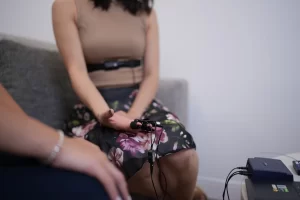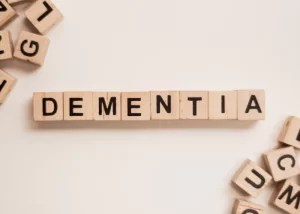Coping with stressful events can be challenging. While some find their rhythm and balance, it can lead to adjustment disorders for many others. People experiencing the same or similar stressors do not respond in the same way. Your development and social skills factor into how you cope. Hence, there is no way to tell if someone may or may not develop an adjustment disorder. Psychological illness doesn’t discriminate in age and can occur anytime. However, adolescents are more prone to being affected by it. As daunting as this seems as a parent, through counselling, medication, therapy, and Neurofeedback, on being identified at an appropriate time, these adjustment disorders are highly treatable.
Causes
Stressful events often lead to the development of adjustment disorders. While you may not be aware of a stressful event for the adolescent, it doesn’t mean the absence of such a trigger incident. What may not appear as stressful to an adult may gravely impact an adolescent undergoing hormonal changes, among other physical evolutions at their age. Moving homes, shifting schools, bullying incidents, having been in an accident or having witnessed an accident, having a close family member die, having to see parents argue or divorce or the birth of a sibling may often lead to confusion for the adolescent. Unequipped to deal with that situation, the adolescent may begin displaying various symptoms of adjustment disorders. These are primarily behavioral and can be followed by physiological, social, and cognitive dysfunctions.
The behavioral symptoms may include acting out, dropping academic performance or failing tests, lacking interest in activities the adolescent or teenager once enjoyed, self-harming behaviors, and substance use, among other non-typical habits. Physical symptoms may include stomach aches, headaches, and chest pains, among other aches, disturbed patterns of sleep, or disinterest in eating. Coupled with social and cognitive symptoms like social isolation, fear of public speaking, anxiousness, or forgetfulness are signs of adjustment difficulties. After the onset of a traumatic event, these signs can start developing in conjunction or appear slowly and consistently.
Persistent two weeks of such behavior is alarming, and one should ideally seek a consultation from a family physician or a pediatrician. It could take about a course of three to six months to develop. Early recognition and address are the best hope for a cure.
Not every adolescent undergoing adjustments may face such difficulties or have a certifiable mental condition. Adolescents may display problems, but they may not be at an alarming level. Their behavior must not be considered a normal response to what they may face. This ‘considered normal’ needs to come from a mental health practitioner, not you, a concerned parent, or a family member. Then they may require treatment. It is essential to get a thorough diagnosis done to ensure the treatment is the right course of action.
Course of Treatment
In times of significant change, one can be precautious and set up checks and balances before it happens. This could be a behavioral intervention to equip the adolescent with better communication, impulse control, problem-solving, and stress management skills. For younger adolescents, it is recommended that the parents go through training to ensure they can assist the adolescent. To enlist their support, it is necessary to be open with the school authorities.
Counselling
Group therapy, family counselling, and individual counselling can help a teen cope. The parent should also It may be a long-drawn process based on the adolescent’s personality and how much they are willing to let the process help them.
Medication
Early regulatory medication can aid the intervention and ensure stability immediately for an adolescent. A display of anxiety, self-harm, and substance use behaviors may make medicine an essential part of the treatment.
Cognitive Behavioral Therapy
A course enabling a person to understand their thoughts and feelings towards the world around them and how it impacts their behavior. Identifying patterns in thoughts and behavior and then working to change and improve their responses over time.
Brain Mapping
This would probably be the most effective way to confirm an adjustment disorder in an adolescent. A brain map basically scans areas of the brain and shows indications of traumatic events. Through an assessment and putting together other crucial information, one could map that to behaviors and patterns. One may choose a course of action based on its results.
Neurofeedback
Before the option for Neurofeedback, it is recommended to do a Brain Map. Done by private health clinics, Neurofeedback may be a longer process, but as opposed to most other ways of treating adjustment disorders, this doesn’t simply address, treat or medicate symptoms. Usually done with little to no medication and may be supplemented by counselling, Neurofeedback is a non-invasive treatment that uses feedback to self-regulate the brain. Done by attaching sensors onto a person’s head, Neurofeedback is a brain training activity that addresses the root cause of changed neuro responses and behaviors. This ensures that, in the long run, your adolescent can make better decisions and choices for themselves rather than having to rely on medication and counselling. In some cases, ongoing counselling and medication may be recommended to ensure customized and specific solutions as the best course of action. The best part about Neurofeedback treatment is that at the end of the recommended number of sessions, one can do a brain map and look for marked differences.
Adjustment disorders take about six months to pass and are easily treated when one reaches out for help. Consistent signs over six months may indicate further entrenchment of distorted behaviors, meaning it could be another or more severe illness altogether. You can do a free 15-minute phone consultation with Elumind to express your doubts about your child and set up an appointment to do a diagnostic consultation.
Elumind Centres for Brain Excellence is an integrated mental health centre offering solutions that can help you with your mental/brain health needs. To start your journey, book your FREE 15-MINUTE PHONE CONSULTATION. We are here for you.








